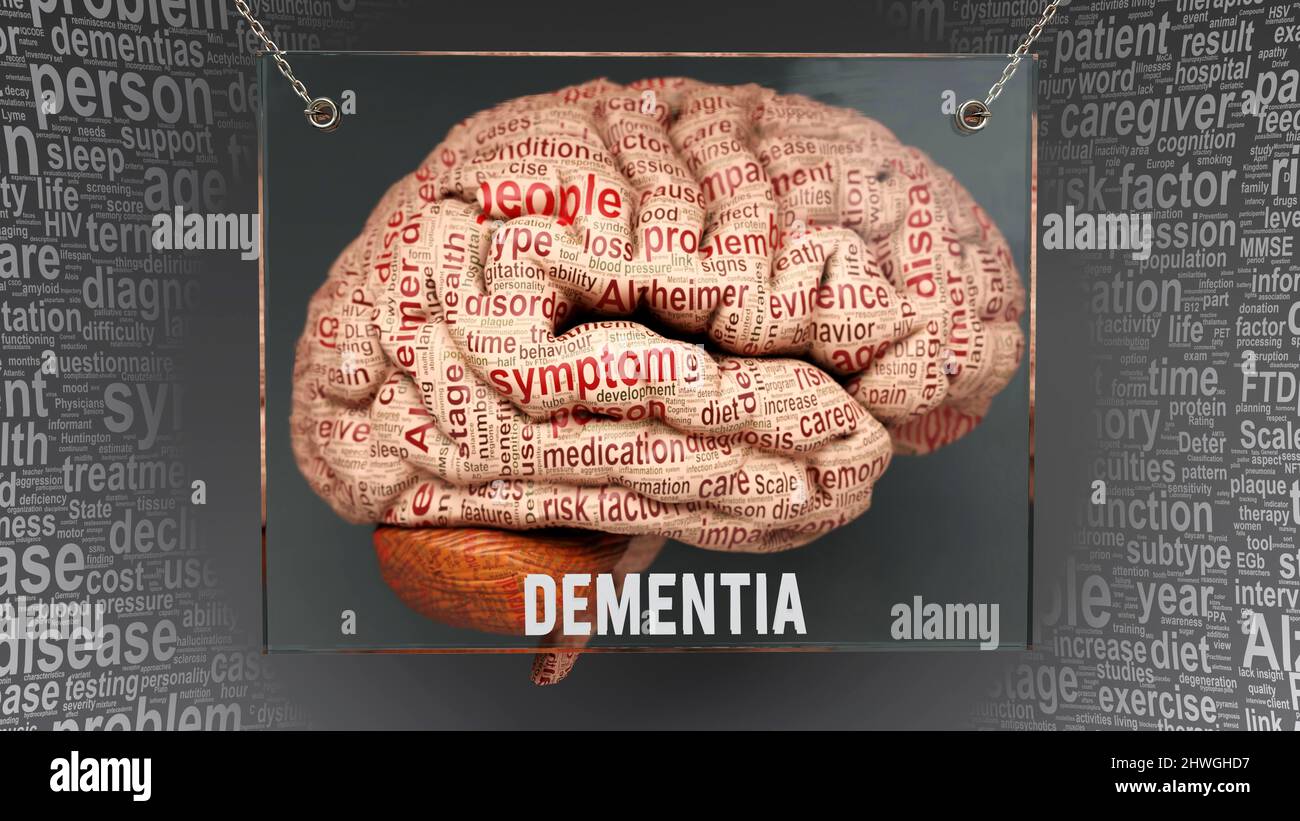Emery Berge is an esteemed health journalist with a solid foundation in neurology. His talent lies in decoding complicated medical terminologies into relatable and comprehensible information for the everyday reader.
Understanding dementia is the first step towards managing it effectively. But what is dementia? Simply put, it's a general term for a decline in mental ability severe enough to interfere with daily life. It's not a specific disease but rather an umbrella term that encompasses a range of conditions, including Alzheimer's disease. Dementia affects the brain, impairing functions such as memory, thinking, and behavior.
Have you ever wondered about the early warning signs of dementia? They can vary greatly, but common signs include memory loss that disrupts daily life, challenges in planning or problem-solving, and confusion with time or place. Recognizing these first signs of dementia or Alzheimer's is crucial for early intervention.
There are several common types of dementia you should be aware of. Alzheimer's dementia is the most common, followed by vascular dementia, which occurs after a stroke. Lewy body dementia stages can be particularly challenging, with symptoms that include changes in thinking and reasoning. Childhood dementia, although rare, is a devastating condition that affects children and young adults.
Remember, early detection is key in managing dementia. Being aware of the signs of dementia or Alzheimer's can lead to earlier diagnosis, allowing for better planning and implementation of strategies to manage symptoms.
🔍 Spotting the Early Warning Signs: Unmasking Dementia
Recognizing the early warning signs of dementia can be crucial for managing its progression. The first signs of dementia or Alzheimer's often manifest as subtle changes in cognitive abilities. You might notice forgetfulness that goes beyond the occasional misplaced keys. Perhaps you or your loved one is having trouble remembering important dates or events, or asking for the same information over and over. It's also important to be aware of the 10 signs that death is near in dementia patients, as this can help caregivers provide appropriate end-of-life care.
As dementia progresses, these memory problems become more pronounced. There may be confusion with time or place, difficulty completing familiar tasks, or trouble understanding visual images and spatial relationships. Changes in mood or personality, such as increased irritability, depression, or fearfulness, can also be signs of dementia or Alzheimer's.
It's important to note that symptoms can vary depending on the type of dementia. For instance, the early stages of Lewy body dementia might include visual hallucinations or issues with movement, while the symptom of vascular dementia might be difficulty with organization and problem-solving. Understanding dementia in its many forms, including the difference between memory care and dementia care, is key to recognizing and managing it effectively.

🧩 Piecing Together the Puzzle: Understanding the Common Types of Dementia
Exploring the Common Types of Dementia
- Alzheimer's Dementia: This is the most common type of dementia, accounting for 60-80% of all dementia cases. It is characterized by memory loss that disrupts daily life, challenges in planning or problem-solving, and confusion with time or place. The exact cause of Alzheimer's dementia is unknown, but it involves progressive brain cell death.
- Vascular Dementia: Vascular dementia is the second most common type of dementia and occurs as a result of reduced blood flow to the brain, often due to a stroke or transient ischemic attack (TIA). Symptoms may include impaired judgment or ability to make decisions, plan, or organize, which are more noticeable than memory loss in the early stages.
- Lewy Body Dementia: Named after the scientist who discovered them, "Lewy bodies" are microscopic deposits of a protein that appear in the brains of people with this type of dementia. Symptoms can range from changes in alertness and attention, hallucinations, problems with movement and posture, to cognitive issues similar to those of Alzheimer's.
- Childhood Dementia: Also known as pediatric dementia, this rare condition occurs in children and teenagers. Symptoms can include decline in school performance, loss of previously acquired skills, behavioral changes, and problems with movement and coordination. Childhood dementia can be caused by a variety of genetic disorders, including Batten disease and Niemann-Pick disease.
⏰ The Race Against Time: Why Early Detection and Management of Dementia Matters
Recognizing the early warning signs of dementia can make a world of difference. Why? Because an early diagnosis opens the door to managing dementia symptoms more effectively. It allows for timely intervention and planning, which can significantly improve the quality of life for both the patient and their loved ones. Understanding the optimal approach to caring for a dementia patient at home can be a great start.
Whether it's the first signs of dementia or Alzheimer's, the early stages of Lewy body dementia, or symptoms of vascular dementia, understanding what to look for is crucial. Often, these signs can be subtle and easily dismissed as normal aging. However, persistent memory problems, difficulty with familiar tasks, or changes in mood and behavior could be indicators of an underlying issue.
Remember, dementia is not a normal part of aging. It's a disease process that requires medical attention. So, if you or a loved one are experiencing any signs of dementia or Alzheimer's, don't hesitate to seek professional help.
In the end, understanding dementia, its common types, and its signs are your first steps towards effective management. Armed with this knowledge, you can navigate the journey with confidence and provide the best care possible. Learning how to provide care for a person with dementia can further enhance your ability to manage the condition.
For more dementia care tips and advice, continue exploring our website. Remember, you're not alone in this. We're here to help.















